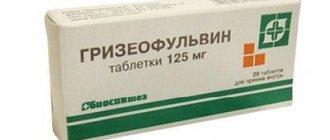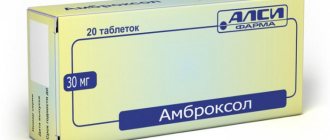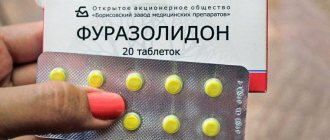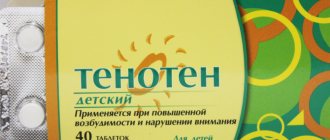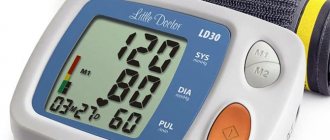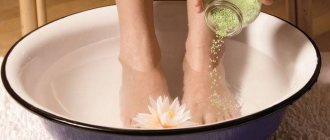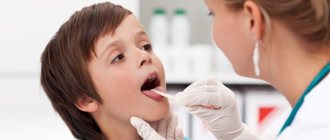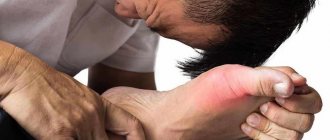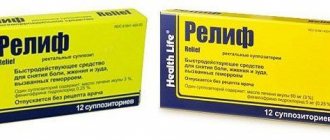The development of helminthiasis (infection with worms and parasites) must be suppressed with anthelmintic drugs.
Parasites that enter the human body through unprocessed or unwashed food, due to non-compliance with hygiene rules, can threaten human health and life.
The best anthelmintic drug is the one that the doctor prescribes after testing. Self-medication will not bring the desired results and can cause serious harm.
In the successful treatment of helminth infestations, the correct dosage plays a role, allowing maximum impact on parasites and minimal harm to the human body due to its toxicity.
How does parasite infection occur?
Unfortunately, many people neglect preventive measures, believing that parasitic diseases are the lot of third world countries or people who neglect personal hygiene. To catch worms, you don’t have to eat unwashed food, hug street cats, or eat raw meat and fish.
The eggs of many parasites (cysts) - roundworms, pinworms, echinococci - are microscopic in size and are found in the soil. Along with dust, cysts rise into the air and are inhaled by people. Once in the human body, the parasite begins its development: a larva hatches from the egg, which then transforms into an adult.
You can become infected with worms through contact with a sick person. At the same time, a person often does not know what is the source of infection: for a long time, helminthic infestation occurs without symptoms. And only after a few years it is discovered that the health has been severely undermined by parasites.
Worm eggs can be found on household items and are carried by insects. There are many ways of infection, so prevention of parasitosis is indicated for both adults and children.
Benefits of broad-spectrum anthelmintics
The main advantage of anthelmintic drugs will be their high efficiency and the absence of the need for long-term treatment using medications from several groups. They affect all parasites at once, which eliminates the re-development of helminthiasis.
Products aimed at destroying a specific type of worms cannot provide such effectiveness.
Even with a detailed examination of a sample of biological material, a specialist cannot always see all types of pathogens at once, so the best option would be to use broad-spectrum agents. When using highly targeted drugs, repeated treatment with other medications is almost always required.
Types of parasitic worms and methods of combating them
The method of infection with parasitic worms, the symptoms of helminthiasis and the tablets suitable for treatment of worms depend on the class of the causative agent of the disease. There are three classes of parasites: cestodes, trematodes and nematodes.
Remedies for cestodes
Cestodes are tapeworms that cause specific diseases in humans: cestodias. There are more than 3,500 helminths in this class, 30 of which pose a direct threat to human health. The most famous representatives of cestodes: dwarf, pork and bovine tapeworms, tapeworm. To combat these parasites, deworming agents containing praziquantel and albendazole are used.
All cestodes have a similar structure: their body is divided into a head, neck and body, consisting of many segments. There are hooks on the head for fastening in the host’s intestines. Each segment of the helminth is a kind of “factory” for the production of eggs: cestodes are very fertile and are capable of producing up to 2 million cysts daily. Together with feces, the eggs enter the environment, where the life cycle of cestodes begins.
The helminth cyst in a protective shell enters groundwater, from there into plants and, together with grass, is eaten by farm animals. In their body, cysts are activated, and larvae hatch from them and spread throughout the body of the intermediate host. When a person eats contaminated meat, the larvae enter his gastrointestinal tract, where they penetrate the intestinal walls and develop into a sexually mature individual. If the larvae enter the blood or lymph, they, along with fluids, are spread throughout the body and settle in any organs and tissues: muscles, lungs, heart, brain and spinal cord. Some parasitic worms from the class of cestodes live up to 20 years, during which they slowly eat a person from the inside. Since cestodes have almost completely lost the digestive system, helminths take nutrients from the host's intestines. The human body quickly begins to suffer from lack of nutrition and vitamin deficiencies.
The most common infestations caused by cestodes are hymenolipedosis, diphyllobothriasis, cysticercosis, and teniarinchiasis. Despite the fact that each helminthic infection has its own specifics, all cestodiases are characterized by some common symptoms:
- The gastrointestinal tract and liver are mainly affected. An exception is cysticercosis, in which pork tapeworm larvae can penetrate any tissue, including skin, muscle, brain and spinal cord;
- Severe mechanical damage to the intestinal mucosa is caused at the sites of attachment of the scolex - subsequently erosion and ulcers form;
- Problems with the gastrointestinal tract develop: pain appears in the intestines, stool is disrupted, vomiting is possible, the patient begins to lose weight, appetite changes (either increases or disappears);
- Neurological symptoms appear: fatigue, sleep disturbances, irritability, and with cysticercosis also headaches and mental disorders.
Properly selected anti-worm medications can quickly get rid of the infestation.
Trematodes and medications for this type of helminth
Unlike cestodes, trematodes or flatworms affect all organs and tissues, causing severe systemic disorders in the human body. The most famous helminths from this class are schistosomes, liver flukes and cat flukes. The structure of all trematodes is approximately the same: adult individuals have a flattened, leaf-shaped body of varying sizes, for example, in liver flukes - up to 2 mm.
The life cycle of the parasite is quite complex with several intermediate hosts. Trematode eggs end up in freshwater bodies and then into the body of the mollusk. A larva emerges from the cyst and undergoes a series of metamorphoses, as a result of which it becomes mobile and active. The cercaria leaves the body of the first intermediate host and invades the body of the fish. Here the helminth larva forms a protective capsule around itself and waits until the fish is eaten by the final host - a person. In the human gastrointestinal tract, the protective shell is destroyed, and the parasite begins to actively explore its new habitat, entering the bloodstream and spreading throughout the body. The “favorite” habitat of trematodes is the liver, bile ducts, and other peritoneal organs.
Preparations for trematode worms contain active substances such as praziquantel, triclabendazole, bithionol, their dosage and course duration vary depending on the type of infestation. Any synthetic medicine for worms is a poison that is dangerous both for helminths and for humans. Therefore, taking anthelmintics is accompanied by serious side effects (including the development of comatose states) and has many limitations.
The general symptoms for all trematodes are as follows:
- Acute allergic reactions: the appearance of rash, itching and irritation on the skin;
- Discomfort when urinating, the appearance of cloudy sediment in the urine;
- Problems with the gastrointestinal tract: diarrhea, the appearance of unpleasant heaviness every time after eating, pain and vomiting;
- Anemia;
- Insomnia, increased irritability;
- Decreased immunity and associated frequent colds.
If you do not take medicine for worms on time, problems appear in the functioning of the organs affected by the parasite. If trematodes have settled in the liver, cirrhosis develops; if the genitourinary system is affected, then blood may be present in the urine, women experience vaginal bleeding, and infertility is possible.
Remedies for nematodes: how to get rid of parasites?
The third class of parasitic worms are nematodes or roundworms. In total, it has more than 24,000 species, but not all of them lead a parasitic lifestyle. The most well-known nematode helminths are roundworms, pinworms and trichinella, which cause ascariasis, enterobiasis and trichinosis, respectively. Ascariasis is one of the most common helminthic infestations: according to WHO, every fourth person on the planet suffers from it. In total, parasitologists count more than 45 species of nematodes that pose a threat to humans.
They all have a similar rounded body shape, but the sizes of nematodes can vary from microscopic (about 80 microns) to simply gigantic (up to 8 meters). The life cycle of nematodes is approximately the same; let’s consider it using the example of roundworms. The eggs of the parasite, along with water, food or air, enter the body of the final host - humans. When swallowed into the gastrointestinal tract, the cyst hatches into a larva that pierces the intestinal wall and enters the bloodstream. Together with the blood, the helminth spreads through tissues and organs, affecting all systems, and settles in the lungs. Together with sputum, the larvae are coughed up and swallowed a second time by the host, again entering the intestines. Here, a sexually mature individual develops from the roundworm larva, which begins to produce new eggs.
For the treatment of nematodes, various drugs for worms are selected, usually based on piperazine adipate, mebendazole, levamisole. General symptoms for all nematodes:
- Allergic reaction to the skin: rashes, itching;
- Intestinal upset: diarrhea, mucus in the stool, abdominal pain, increased gas formation;
- If the lungs are affected - cough, blood in the sputum;
- From the nervous system: fatigue, sleep disturbances, increased irritability, apathy.
Symptoms of helminths
Regardless of the form of the parasite, infection is characterized by a gradual increase in signs of helminthiasis.
Symptoms of infection appear in the form of:
- Dysbacteriosis,
- Rash,
- Abdominal pain
- Dry cough.
A clinical blood test shows a change in the level of eosinophils.
Severe symptoms indicate the advanced stage of the disease:
- Inflammation that develops due to irritation of the tissues of internal organs.
- Metabolic disorders.
- Ingestion of toxic substances into the body, leading to the failure of vital processes.
Depending on the type of parasite, the disease manifests itself after 2 weeks, and can make itself felt after a year or more.
Methods of helminth infection: where do parasitoses come from?
Maintaining personal hygiene and high-quality heat treatment of food is not enough to prevent helminthic infestations. A remedy for worms will be needed not only if a person regularly spends weekends in the country or keeps farm animals. There are many ways to become infected with helminths:
- Inhale parasite cysts along with dust.
Microscopic eggs of worms are contained in the soil and, together with dust, rise into the air, settling on household items and clothing. This is one of the most common ways of contracting parasitic diseases.
- Consume food and water contaminated with worms.
Helminth larvae and their eggs are present in meat, fish, milk, fruits, vegetables, herbs and water. To avoid helminthic infestation, you need to not only wash your hands, but also heat-treat all food and drink only boiled water. But this does not provide a 100% guarantee that anti-worm medications will not be needed: cysts can get on the skin during cutting of an infected product.
- Contact with a sick animal or person.
Worm eggs are present on the fur of sick animals (including domestic ones), from where they are transferred to clothing, toiletries, dishes and swallowed by humans. You can also catch a helminthic infestation through contact with a sick person: for example, by shaking hands. Therefore, in closed groups (kindergartens, boarding houses), preventive tablets against worms are regularly taken.
- Take a walk in the park or visit an endemic area.
A number of parasitic worms are able to penetrate the human body through unaffected areas of the skin. These include filariae: they literally pierce the skin and reach the bloodstream, entering various tissues of the human body.
In order to recognize a helminthic infestation in the early stages and take anti-worm medications in a timely manner, you need to know the main symptoms of parasitic diseases.
Anti-parasite drops for humans
It has been proven that parasite drops for people have fewer negative side effects and do not have such a devastating effect on the body than anthelmintic tablets, the medicinal components of which are not completely eliminated and are absorbed into the organs. The active substances contained in the drops are completely excreted along with feces and urine. Thanks to the gentle method of neutralizing parasites, drug treatment with drops is indicated for a child or person with chronic diseases. Parasitologists noted the following effective drops for helminthiasis:
- Antihelminthic Forte;
- Intoxicant;
- Bactefort;
- Anti Toxin NANO.
General symptoms of helminthic infestations
Parasitic worms infect all types of organs and tissues, disrupting their functioning and gradually destroying the human body. Many helminthic infestations have specific symptoms associated with damage to a specific organ: for example, with filariasis, the conjunctiva of the eye may become cloudy, and with cysticercosis, a severe neurological disorder may develop, including seizures and paralysis.
But the severity of symptoms in parasitic diseases is directly related to the number of cysts ingested, the specifics of the parasite’s life cycle, and its age. Therefore, many infestations are asymptomatic at first; a person notices slight malaise and dizziness, without even thinking about the need to take deworming medication. When a patient goes to the doctor with an illness, the specialist does not assume he has a helminthic infestation, but begins symptomatic treatment. The patient feels better for a while, but then the symptoms return and intensify. Because the root cause - helminths - has not been eliminated. This is due to the difficulty of detecting parasitosis: conventional tests and scrapings are not indicative. And only when severe disorders appear: the liver begins to fail, ulcers open in the intestines, and it turns out that the patient has long been a carrier of parasites.
Symptoms indicating the possibility of parasitosis:
- Allergic reactions on the skin.
Redness, the appearance of hives, eczema, itching - all this may indicate the presence of worms in the body. Often helminthic infestations are accompanied by respiratory tract allergies: rhinitis, redness of the eyes, swelling of the nasopharynx.
- Gastrointestinal disorders.
Diarrhea or constipation, discomfort in the stomach and intestines, pain in the right hypochondrium - all this indicates the appearance of helminths in the body. Nausea and vomiting, mucus and blood in the stool are also common symptoms of helminthic infestations. At the same time, disturbances in the gastrointestinal tract are often periodic and appear during the migration of parasites.
- Neurological disorders.
Any helminths gradually poison the human body with their toxins, affecting the human nervous system. Headaches, insomnia, apathy, fatigue, increased excitability and irritability appear. Together with sweating and pale skin, such symptoms indicate infection with helminths.
- Reduced immunity.
Parasitoses cause acute immunological reactions in the form of allergies, but gradually the body no longer has the strength to fight helminths and immunity decreases. The body becomes “open” to bacteria and viruses: people infected with parasites are more likely to suffer from acute respiratory infections and acute respiratory viral infections, and are at risk for HIV, oncology and diseases of unknown etymology (for example, Alzheimer's disease).
As the infestation progresses, the symptoms become more severe. Appears:
- Gastrointestinal ulcers, gastric and intestinal bleeding;
- Cirrhosis, peritonitis, cholecystitis, purulent cholangitis;
- Formation of adhesions on the organs of the genitourinary system, leading to infertility;
- Endocarditis, heart murmurs, disturbances in the functioning of the heart muscle;
- Pneumonia and chronic bronchitis, pleural prolapse.
If treatment for helminthic infestation is not started in time, it will lead to serious disruptions in the functioning of all organ systems and death. The presence of one or more symptoms is a serious reason to think about the presence of parasitosis and undergo a course of anthelmintic therapy.
General conclusions
If you notice symptoms of helminth damage, it is recommended to consult a doctor to make a correct diagnosis. It is very important to determine the type of parasite in order to select the most suitable remedy and treatment regimen.
Each person has a choice of which product to use: natural or chemical. Herbal preparations are considered the safest; they are non-toxic to the human body and do not cause side effects. Herbal medicines do not kill helminths in the human body, but remove them naturally.
It is recommended to conduct preventive courses for young children and families where there is a risk of helminth infection. It must be remembered that in the first days the disease may be asymptomatic.
Preventive use of deworming tablets
Since the risk of infection with parasites is high, every responsible person is faced with the question: is it necessary to take anti-worm medications for prevention? Here the opinions of infectious disease specialists and parasitologists differ. Synthetic antihelminthic drugs are toxic and have a large number of contraindications. However, if one of the family members has a helminthic infestation, in order to avoid reinfestation, everyone is recommended to take a course of anthelmintics.
Preventive antihelminthic measures are indicated in families with small children: among them there is a high risk of infection with enterobiasis, and the test for it (smear from the anus) is often false negative. Therefore, preschoolers are often prescribed tablets with pyrantel once every six months. But such treatment for worms is only half effective: chemicals affect only adult helminths, while the larvae and eggs of parasites remain in the child’s body, continue to develop and harm it.
Also, residents of agricultural areas, during sowing and harvesting, travelers before visiting exotic countries, hunters and fishermen should not neglect antihelminthic prophylaxis. All these categories of citizens are at risk of parasite infection. Typically, preventive measures against parasites are carried out twice a year: in spring and autumn.
How and with what to treat
There are the best anti-parasite drugs for humans on the market. They are divided into those allowed for patients of any age and relatively safe only for adults. The drug treatment route has an alternative - folk remedies. However, doctors believe that they should be used only as an addition to the main program. There are two key types of anthelmintic drugs on the market – broad-spectrum drugs and highly specialized ones. Synthetic compounds produced in industrial conditions have shown their reliability when infected by various forms of parasites. Highly specialized are medications designed to combat trematodes, cestodes or nematodes. If a product has a broad spectrum of action, it is called anthelmintic.
Treatment of helminthic infestations in children
Most deworming tablets are indicated for use by children over 2 years of age. What to do if a parasitic disease is diagnosed in an infant? This is not uncommon: often the fetus becomes infected in the womb if its mother is susceptible to helminthic infestation. If an infant is diagnosed with helminthiasis, treatment should be strictly controlled by a pediatrician: the specialist prescribes the correct dosage and selects anti-worm medications that are safe for the child’s body.
In some cases, doctors recommend waiting until the child is older to reduce the danger from the toxic effects of the deworming drug. But this is not always justified: with serious parasitic diseases, the child stops both in physical and mental development. His body is gradually poisoned by helminth toxins, metabolic processes are disrupted, and the child’s body does not receive enough macro- and microelements necessary for life. All organ systems suffer, inflammation of the intestines, liver, bile ducts, lungs, and heart develops. This creates a huge risk to life: parasitosis leads to death.
Therefore, it is so important to prevent helminthic infestations in children and to undergo a preventive anthelmintic course before conception, and to observe the rules of personal hygiene during pregnancy.
A few words about prevention
Prevention of parasitosis is no less important than therapy itself, because avoiding a possible disease is a significant success. Following basic measures will protect you and your children from unwanted diseases. So, you must adhere to the following recommendations:
- mandatory hand washing after being outside the home, before each meal, after visiting sanitary facilities, contact with animals or soil;
- sufficient heat treatment of fish, meat, milk, eggs;
- washing fruits, vegetables, berries;
- maintaining the cleanliness of the premises, as well as the cleanliness of children's toys;
- fight against insects that are carriers of numerous infections;
- avoiding contact with potentially hazardous environmental objects - stagnant bodies of water, soil, etc.;
A prerequisite for prevention is attention to your own well-being, regular visits to the doctor, periodic testing and taking antiparasitic drugs in preventive doses.
Tablets for worms during pregnancy
Pregnancy is a contraindication for taking most anti-worm medications, especially in the first trimester, when the main tissues and organs of the fetus are developing. Doctors prescribe anthelmintics only if a woman's life is at risk if treatment is not started immediately.
To cure helminthic infestations, pregnant women are prescribed drugs based on piperazine. But the optimal solution would be to take a preventive anthelmintic course before conceiving a child.
Highly specialized tools
It is difficult to say what the best drug for parasites is, since for each specific case the answer will be different. If tests show infection with tapeworms, medications designed to eliminate cestodes will help. They provide good results not only with intestinal invasion, but also with infection of other tissues. Products containing niclosamide have a good reputation. For the extraintestinal form of the disease, Albendazole is indicated. To improve the tolerability of the program, the doctor may prescribe a course of antihistamines.
If studies show infection with nematodes, medications come to the rescue:
- "Piperazine."
- "Levamisole."
- "Pyrantel".
- "Naftamon".
For extraintestinal infection, medications containing diethylcarbamazine citrate are prescribed. The drug "Ivermectin" is effective.
If the disease is localized outside the intestinal tract, it is recommended to use Chloxyl and Bithionol.
Popular medications for worms
Despite the large number of anti-worm tablets, most of them use the same active ingredients of varying degrees of purification and dosage. To simplify the choice of a suitable anthelmintic drug, we offer a selection of anti-worm medications based on the active ingredient.
Dekaris
The active ingredient is levamisole, which is aimed at removing various representatives of the class of roundworms from the body. Therefore, Decaris is prescribed for ascariasis, enterobiasis, and other nematodes. The drug is also effective against toxoplasmosis.
Levamisole blocks normal muscle conduction in the body of helminths, literally paralyzing them. After that, the immobilized nematodes are naturally eliminated from the human body within 24 hours.
Despite the effectiveness and relative safety of the drug, it is not prescribed to children. Lactation is a contraindication; it is used with caution during pregnancy (only if the effect of the anthelmintic is higher than the risk it poses).
Decaris is used once in a dosage of 150 mg, is incompatible with drugs containing alcohol and can cause side effects such as nausea, dizziness, vomiting, abdominal pain, diarrhea and insomnia.
Vermox and Wormin
Both types of deworming medications work by using mebendazole, a substance that interferes with normal metabolism in the tissues of parasitic worms. Therefore, mebendazole is equally effective against helminthiasis caused by different classes of parasites. It is prescribed for the treatment of various types of tapeworms, roundworms, pinworms and, in general, it is suitable for getting rid of cestodiases and nematodes.
Like other medications for worms, Vermox and Wormin are contraindicated during pregnancy and breastfeeding; they are not prescribed to children under two years of age. Side effects such as dizziness, nausea, and allergies are possible. It is possible to develop anemia and disrupt the normal blood formula.
Helminthox
The active component in Helmintox is pyrantel. It affects the muscles of nematodes, depriving them of mobility. The drug is prescribed for various nematodes: ascariasis, infection with pinworms or trichinella. Helmintox does not have an equally effective effect on all types of nematodes, but, in general, it promotes the rapid removal of parasites from the body, excluding larvae in the migration stage.
The drug is not prescribed during pregnancy and lactation; Helmintox should also be used with caution in case of liver failure. To achieve results, a single dose of anthelmintic is required. Side effects from the gastrointestinal tract and nervous system are possible.
Nemozol, Aldazol, Vormil
This group of deworming drugs contains albendazole, a substance that disrupts metabolic intracellular processes in the body of helminths, as a result of which adults and larvae die. The drugs are effective against various helminthiasis: echinococcosis, trichinosis, opisthorchiasis, giardiasis, toxocariasis, mixed infestations. They also affect some cysts.
The course of medications for worms depends on the type of infestation. For most helminthiases, a single dose of albendazole is indicated, but if the patient is sick with strongoloidiasis, the medicine is taken for three days with a repeat course after 3 weeks, and for cysticercosis, anthelmintics are taken from 8 to 30 days.
Possible side effects: headache, leukemia and thrombocytopenia, hyperthermia, headache, disruption of normal kidney function. Any albendazole-based anthelmintic drugs are contraindicated during pregnancy and lactation, and they should not be given to children under 2 years of age.
Any chemical preparation for worms is toxic not only to the helminth, but also to humans. The tablets disrupt normal hematopoietic functions, have a detrimental effect on the brain, and taking them can lead to an acute allergic reaction: pulmonary edema. In addition, the effectiveness of many tablets against worms is questionable: the drugs affect only adult helminths, but do not kill larvae in the migration stage, and do not affect cysts. Therefore, when taking such drugs, helminth infections return after a few weeks, when new parasites hatch from the eggs remaining in the body.
Much more effective and safer are natural preparations based on herbal ingredients, which are taken over long courses. They are safe for humans, do not cause acute toxic reactions, and can be taken by children and nursing mothers. At the same time, they remove adult helminths, their larvae, and cysts from the body, completely freeing a person from invasion.
How to improve the effect of pills?
Doctors often prescribe several medications at the same time. For example, to obtain maximum results in cases of protracted infestation and massive parasite infestation, a specialist may initially prescribe Decaris, which will not completely destroy them, but will significantly weaken them. And then, in the next 24 hours, the patient must take a stronger drug - Nemozol or Vermox, which will kill parasites in the body.
Also, full treatment cannot take place without a set of auxiliary measures. Broad-spectrum drugs kill parasites, but their use is usually accompanied by the development of signs of intoxication associated with the decomposition of dead worms and poisoning by accumulated waste products. In this case, the body needs help, for example, by prescribing sorbents.
Activated carbon or Enterosgel do an excellent job of this task. Additionally, the doctor may prescribe laxatives, which accelerate the elimination of parasites from the intestinal tract, and antiallergic drugs, the task of which is to reduce the risk of sensitization of the immune system to the decay products of helminths.
The choice of drugs for worms
Deworming agents are selected taking into account:
- Type of helminthic infestation;
- Degree of infestation;
- The patient's current condition and history.
Not only the type of anti-worm tablets is selected individually, but also their dosage and course of administration. Often, concomitant medications are prescribed to facilitate the evacuation of adult helminths and their larvae (for example, laxatives). Prebiotics, immunomodulating drugs, and vitamin complexes also help in the fight against parasites.
Only systematic treatment allows you to completely get rid of helminthic infestation, remove parasites from the body at all stages of the life cycle, including eggs, and eliminate the consequences of the disease.
Mechanism of action of anthelmintic drugs for humans
Antihelminthics, when prescribed the correct dosage and following the recommendations of a specialist, have a strong effect on the human body. After ingestion, the active components of the drugs negatively affect parasites of various types. They slow down metabolic processes in the body of helminths and stop the transmission of nerve impulses.
This leads to loss of the ability to move in the small and large intestines of a person. Additionally, medications affect the outer shell of the parasites, which leads to its disruption. As a result, digestive enzymes disrupt their vital functions, and the helminths die because they are unable to feed and absorb the necessary components.
How else are worms dangerous?
Helminths affect all organ systems and tissues; severe infestations lead to the gradual destruction of the human body and death. But helminthic infections are dangerous not only for this.
Parasites feed on the body of their host; they literally “drink all the juices” from the body. As a result of helminthic infestations, vitamin deficiencies develop; a person does not receive essential micro- and macroelements, such as selenium, zinc, copper, and iron. Metabolic processes in cells are disrupted, vitamins are not synthesized, and concomitant degenerative diseases develop, such as scurvy. Due to vitamin deficiency due to parasitic diseases, hair falls out, the skin becomes dry and gray, the functioning of the nervous system deteriorates: periods of apathy alternate with attacks of irritability, normal sleep disappears.
In addition to the fact that helminths “eat” all the useful substances, they also poison the human body with their waste products - dangerous toxins. Parasite poisons are poorly excreted by the kidneys and liver, whose functions are already impaired due to helminthiasis. Gradually, toxins accumulate in the blood and spread throughout the body, causing such frequent symptoms of parasitosis as allergies, decreased immunity, and headaches. Over time, the symptoms worsen: tremors appear in the limbs, vision is impaired, and internal bleeding begins. Every organ becomes inflamed: doctors diagnose chronic cholangitis, intestinal and stomach ulcers, cirrhosis, bronchitis and pneumonia appear in the respiratory system, the heart “makes noise” - endocarditis develops.
Therefore, anti-worm remedies must work in a comprehensive manner: not only remove helminths from the human body at all stages of their life cycle, but also eliminate toxic poisoning and replenish the lack of nutrients. This is how Optisalt preparations, made from natural plant ingredients, work.
"Optisalt" is indicated for use in long courses sufficient to completely remove all helminths from the body, including their larvae and cysts. Therefore, it is also recommended for anthelmintic prophylaxis. Optisalt also replenishes the balance of nutrients in the body and relieves the symptoms of helminth toxicosis, ensuring a person’s rapid and complete recovery after parasitosis.
Advantages of the antiparasitic complex:
- Does not contain destructive chemical elements;
- Restores the human body;
- Removes parasites (including their larvae and eggs) from all tissues and organs;
- Restores the balance of microelements;
- Gently removes toxins and heavy metals;
- Restores normal activity of the gastrointestinal tract, liver, genitourinary, nervous, cardiovascular systems;
- Strengthens the immune system;
- Relieves allergy symptoms;
- Calms the central nervous system: depression, insomnia, irritability and fatigue disappear.
Since the complex is completely natural, it can be taken at any age.
"Helmintox"
Among the best drugs against parasites is this reliable remedy, made on the basis of pyrantel embonate. The medicine belongs to the anthelmintic category and allows you to get rid of pinworms and roundworms. If hookworm is diagnosed, it will probably be prescribed. This is the first choice drug to combat this disease. Hookworm disease is a disease caused by infection with worms that have a round oral sucker, due to which they are attached to the intestinal walls of the upper thin part of the organ.
The medicine should be used by adults weighing up to 75 kg - 3 tablets once, weighing more than 75 kg - 4 tablets. Children over 6 years old - 1 tablet per 10 kg of weight. The exact dosage is calculated based on weight and the presence of accompanying pathologies. In childhood, a suspension should be used.
The instructions say that there is no need to use a laxative before the course. The cost of one package is from 70 rubles and above.
Effective means for preventing worms in people
Prevention of worms with medications is indicated in the following cases:
- Constant presence of animals nearby.
- Frequent earthworks.
- Hobbies such as hunting and fishing.
- Visiting exotic countries.
- Constant contact of the child with other children.
The following medications should be taken to prevent worms:
- "Piperazine";
- "Carbendatsim";
- "Levamisole";
- "Albendazole";
- "Pyrantel";
- "Vermox";
- "Dekaris."
Instead of antihelminthic drugs, it is better to carry out prevention with healthy products:
- Onion. Cut 1 medium onion, pour a glass of boiling water. After 12 hours of infusion, strain and drink 0.5 tbsp. 4-5 days.
- Garlic. Take a glass of milk, boil it, throw in a large head of garlic. Boil the garlic until soft, and then strain the solution. Do an enema with cooled milk every day for about a week.
- Wormwood decoction. Take 1 tbsp. chopped herbs, pour a glass of boiling water, leave for 6 hours. Taking half a glass of the prepared product, use it to make a cleansing enema. Repeat the procedure in the evening for 6 days.
- Pumpkin seeds. In the morning on an empty stomach, eat about 200 g of pumpkin seeds and drink a laxative. Repeat once a week.
If there are no signs of worm infection, especially pregnant women, you should just follow a few simple tips:
- Keep your home and body clean.
- Eat only well-processed foods.
- Do not drink tap water.
- Iron your clothes. Don't forget about bed linen.
- Wash fruits and vegetables before eating.
- Wash your hands often, especially after going outside and before eating.
Pregnancy and helminthiasis
No one is immune from helminth infection, including pregnant women. Pregnancy is one of the first contraindications for most anthelmintic drugs. In such an unpleasant situation, what should the expectant mother do, how to expel the destructive parasite, if all the drugs are highly toxic?
It is precisely because of the potent composition, which can cause more harm to the fetus than worms, that the use of common drugs is strictly prohibited.
But this does not mean that you will need to live with enterobiasis or ascariasis throughout your pregnancy. Experts prescribe only one single remedy that is non-toxic and as gentle as possible, this is Piperazine .
Features of taking Piperazine during pregnancy:
- if ascariasis is detected: 2 grams per day twice a day 1 hour before meals or the same time after meals; course – 2 days;
- if enterobiasis is detected: the dosage is the same, but the duration of treatment will be 5 days, after which you need to take a 7-day break, and then take the medicine again according to a similar regimen (total: 2 courses).
"Vormil"
Among the best inexpensive drugs for parasites, this one ranks far from the last. The main active ingredient is albendazole. The medication is indicated for use in cases of helminthiasis localized not only in the intestinal tract, but also in other organs and systems. The drug is effective against enterobiasis. It is used to treat hookworm infection and toxocariasis. “Vormil” has shown itself to be excellent in the fight against Giardia, Trichinella, and helps cure hymenolepiasis. The doctor selects the dosage individually, focusing on the characteristics of the patient’s body. You should consume up to 0.4 g per day. The duration of the therapeutic program is from three to five days. The cost of one package is from 50 rubles.
"Pirantel"
Some doctors believe that for children, the best drug against parasites is Pirantel. The drug is named after its main active ingredient. It is prescribed for kylostomiasis, roundworm infection, and enterobiasis. The dosage is determined based on the characteristics of the case. The minimum volume is 125 mg. The maximum dose is one gram. In addition to weight, the age of the patient plays a role. In some cases, after the initial course, re-taking the drug after a few weeks is required. One of the effective programs is three-day use of the medicine. The tablet must be chewed thoroughly.
Among the obvious advantages of this product is its affordable price. One package costs about 20 rubles.
Drugs against nematodes
People are predominantly infected by roundworms and pinworms, which belong to a specific class - nematodes. In very rare cases, infection occurs with parasites such as whipworm and taxiworm. Small roundworms are sensitive to the following drugs:
- Albendazole and its analogues - Sanoxal , Gelmodol-VM (170-250 rubles);
- Levamisole hydrochloride or its analog Dekaris (62-80 rubles);
- Albendazole and analogues - Nemozol, Zentel (200-350 rubles);
- Piperazine adipate (12-20 rub.);
- Nemotsid (127 -150 rub.) or Helmintox (30-55 rub.);
- Wormil or Vermox (55-90 rub.);
- Dietary supplement Phytoglistocide (240-250 rubles).
+ For migratory types of helminths, that is, parasitic outside the intestines and affecting the skin and internal organs of a person, it is appropriate to take special means, these are:
- Thiabendazole;
- Ivermectin;
- Ditrazine;
- Diethylcarbamazine.
"Dekaris"
If you ask a doctor which drugs are the best for parasites, he will probably name this remedy, which has proven itself over the years of use, among the most reliable. The main ingredient that ensures the effectiveness of the composition is levamisole. The drug is manufactured in tablet form.
The choice is made in its favor if necators, roundworms are identified, if hookworm infection cannot be determined. The active ingredient paralyzes muscle tissue in the body of the helminth, disrupts the functioning of the nervous system, causing the parasite to die. Removal of worms occurs, on average, within 24 hours. It is enough to use the product once. Dosage – 150 mg. If it is necessary to treat children, the dose is determined based on weight: no more than 2.5 mg/kg.
Drugs against trematodes
A group of flatworms, also called flukes, have the ability to reproduce rapidly in the human body. For example, a female Fasciola vulgaris (liver fluke) can lay 20 thousand larvae per day. This category of parasites includes the lanceolate fluke, pulmonary fluke, liver fluke, Chinese fluke and lanceolate fluke, etc. Human trematodes are treated with the following medications:
- Chloxyl and its analog Ditrazine citrate are the main drugs intended for the treatment of trematodes;
- Biltricide or Pikviton (400-1800 rubles);
- Praziquantel and Azinox ( 460-1330 rubles).
Types of worms and their characteristics
The therapeutic course is based on the type of parasitic worm.
Trematodes are flat helminths that reach 1.5 m in length. The danger lies in the ability of worms to attach to the walls of an internal organ, affecting the liver, intestines, kidneys, stomach and even lungs.
Nematodes - roundworms - attack humans most often. They reach 40 cm in size. Nematodes have subspecies, which include pinworms, trichinae, roundworms, whipworms, etc. Parasites are localized preferentially in the large and small intestines.
Cestodes - tapeworms are similar to trematodes in structure (flat, with suckers), but can grow up to 10 m in length. A very dangerous type of parasite, which includes tapeworm (pork, bovine), wide tapeworm, echinococcus. Worms most often affect the intestines, but can travel to the stomach, liver, kidneys and other vital organs.
Important!
To cope with an infection, you need to select a remedy developed for a specific type of worm. Otherwise, taking medications for a person may be in vain.
"Niclosamide"
Among the best drugs for parasites, it is worth noting this reliable medicine. It shows a clear result if an infection with tapeworms has occurred. The active ingredient paralyzes pathological organisms and reduces resistance to enzyme compounds produced in the gastrointestinal tract. It is prescribed if a person is infected with a bovine or dwarf tapeworm or a broad tapeworm. Adults are prescribed two to three grams of medication per day. For children under two years of age, no more than 0.5 g per day is recommended, and from 2 to 12 years old - no more than one and a half grams. The frequency of administration is determined by the doctor, focusing on the diagnosis.
Taking this drug may cause dyspepsia. Do not use the product for stomach ulcers, anemia, or while pregnant. Contraindication is advanced age. The product should not be used if there are serious problems with the liver or kidneys. For pork tapeworm, the drug is not used, since there is a danger of cysticercosis. On the day of taking the medication, you should eat only foods that are easily absorbed by the body. Preference is given to liquid form. It is recommended to combine an anthelmintic with laxatives.
What patients say
There are many reviews about the best drugs for parasites, since the problem is widespread. Almost every person has encountered it at least once. As you can see from the responses, people get the best impressions from the most well-known and reliable products - Pirantel, Dekaris, Vormil, Mebendazole.
From numerous reviews we can conclude that self-medication ended in a worsening of the condition or did not lead to the expected result. To avoid such risks, you should visit a doctor and do all the necessary research. Only after this can you begin the treatment program chosen by the specialist. This way the therapy will be effective and safe.
"Mepakrine"
This medicine rightfully occupies a place in the list of good drugs for parasites in the body. On average, its cost in pharmacies is about 200 rubles per package. The main disadvantage is the difficulty of purchasing, since the medicine is not available in all pharmaceutical retail outlets. Mepacrine belongs to the class of antiprotozoals and is used for giardiasis if nitroimidazole processing products do not show the desired result. You should consume 0.3 g of the drug per day. The daily dose is divided into three servings. The duration of therapy is from five days to a week. For children, the dose is calculated based on weight: 2 mg/kg. You should not consume more than 0.3 g per day. If there are indications for this, the therapeutic program is repeated after a couple of weeks.
Although Mepacrin is considered a good drug for parasites in the body, it can provoke an undesirable reaction. It is known that some reported vomiting and nausea, while others experienced pain and dizziness. With a long course, it is possible that the skin tone may change and the urine will become more yellow. It is extremely rare that the medication causes anemia. This remedy should not be used if you have a high level of sensitivity to the ingredients, or if you have psoriasis. For elderly people and those suffering from liver diseases, this drug is prescribed carefully, monitoring the vital functions of the body. During the entire course of treatment, it is necessary to refrain from drinking alcoholic beverages in order to eliminate the risk of disulfiram-like reactions.
